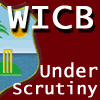Exclusive: The Ramphal Report
Thu, Sep 3, '09

The following report by Caricom-appointed mediator Sir Shridath Ramphal was sent to President Bharrat Jagdeo to explain the end of the mediation between WICB and WIPA:
After more than a month of strenuous effort I must regretfully report that the Mediation Process authorized by the Agreement of 21 July between the West Indies Cricket Board and the West Indies Players Association has failed to produce agreement between the Parties on the way forward for West Indies cricket.
Twenty-four hours before the Mediation Process ended I believed there was such an agreement save on one issue which, with the agreement of both parties, I was seeking to have resolved by third party cooperation, which seemed likely -- a probability which I conveyed to both Parties. I am forwarding you the text of that Agreement which I hoped would have been signed. The processes that were almost agreed in the Mediation are capable of returning West Indian cricket to normalcy if they were to be pursued in good faith and with a genuine spirit of partnership, reconciliation and fairness. They did not address structural problems in the governance of cricket and the organization of players. These matters were not within the strict mandate of the mediation; but they loomed large in any efforts to mediate critical current issues. Failure to address them probably proved fatal to our best efforts. I cannot submit this Report without pointing to the need for that structural change in West Indies Cricket as a whole. In WICB, in WIPA, at the Regional and at the Territorial level. Little of this will be contested; the question is whether structural deficiencies will themselves stand in the way of their own removal – whether the status quo will not itself obstruct change. If so, the present crisis will defy reconciliation, and new crises will arise.
That may point to a role for Governments; a circumspect role, of course, for no one wants Governments to ‘interfere in sport’. If structural self-improvement does not take place, however, and the failure of this Mediation Process implies that it will not, Governments should facilitate the necessary change through, for example, the organization of the Caricom Secretariat, of an early meeting by all stakeholders in West Indian cricket to contribute to its rescue.
The Mediation Process promised to bring closure to the present crisis - admittedly, by processes that would unfold over coming months. Immediately, a measure of normalcy would have returned to West Indian cricket. Our best players would again play for the West Indies. Time would be needed to heal the larger wounds; and the healing process would have to be helped by restraint on all sides – in what is done, in what is said. Adjudication, negotiation, arbitration can achieve much in making a reality of ‘partnership’; but, that reality must reside in the hearts and minds of administrators and of players, who are the partners. In the end, alas, willingness to embrace change proved too tenuous to enable reconciliation. Yet, it is change alone that will now save West Indian cricket.
I am sending this Report to you as Chairman of CARICOM, and to the Secretary General. These are my thoughts at the end of the Mediation. Neither of the Parties bears any responsibility for them,
Shridath Ramphal
1 September, 2009
